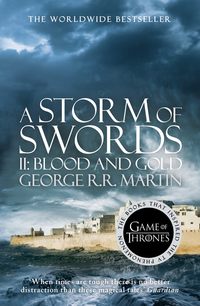
Полная версия
Mississippi Roll
Justice. Karma. Payment for his sins. Wilbur had been brought up Methodist, but he’d lost his faith somewhere along the way. He didn’t know if there was a God or not, but whether it was God’s hand or simple fate that had marooned him on his own vessel, it was his sentence to bear.
It was a bright day in New Orleans, and Wilbur hadn’t taken in steam in hours. Even filled with steam and willing himself to be visible, in sunlight he’d be little more than a passing wisp of cloud, perhaps a stray, soggy refugee from the stacks or the ’scape pipes or a leaking radiator. But Wilbur was content to be invisible at the moment. He walked the main deck – at least, that was his perception of what he was doing, though he’d seen his reflection in a window or mirror many times over the decades, and to an outsider, he was a specter gliding soundlessly just above the boards. There were far more people on board than usual for the Natchez; it was looking like this would be a profitable trip, and he entertained the thought that this might change the minds of the consortium that owned the boat.
As he turned the corner of the promenade and moved toward the gangway leading to the dock, three young men, laden with odd pieces of equipment, were coming toward him, talking excitedly among themselves. They’d come aboard the night before: two brothers, Ryan and Kevin Forge, and Sean Venters, a cousin. According to Jeremiah, they had a cable television TV show (both cable and television being technologies that simply made Wilbur shake his steamy head in mingled wonder and disgust) called The Dead Report, where they investigated the paranormal. They were aboard looking for the Natchez’s nonexistent ghosts … and especially Steam Wilbur.
‘The EMF fields are fluctuating like crazy,’ Sean was saying to Ryan as Kevin filmed their interaction, walking backward. ‘We’re close to something.’ Wilbur had to step/glide aside quickly to avoid having Kevin pass directly through him – he didn’t intend to give the ghost hunters anything to talk about on their show.
‘Supposedly there’s a ghost around here – a little girl named Lizbeth,’ Ryan said. He was dark-haired and muscular, with tattoos crawling his arms (another new societal change that made Wilbur shake his head – even the sailors Wilbur had known in the war hadn’t defaced their bodies this much). ‘If we can find a cold spot, maybe we can make contact with her …’
Wilbur let the trio pass him, then continued around to the dock side of the ship.
♣The Natchez was bustling with activity everywhere. The dock side of the main deck was swarming with visitors and passengers, the air was alive with chatter as deckhands and roustabouts doubled as bellboys, carrying luggage from the dock onto the steamboat and up to the staterooms and cabins on the boiler deck.
Wilbur could see Captain Marjorie Montaigne looking like she’d just stepped out from the late 1800s in her captain’s uniform with its ostentatious piping and embroidery. Montaigne had taken over as captain of the Natchez almost a decade ago; as far as Wilbur was concerned, if none of the captains since his death had been as competent as he’d been, he had to grudgingly admit Montaigne had managed to turn around or at least stop the decline of the Natchez during her tenure.
She was also a lesbian, and admitted that openly – another new societal twitch that Wilbur didn’t quite understand or agree with. In his day, one kept such things tightly closeted and one never talked about them. Still, he had to allow that Montaigne did her job as captain well enough, and though it was still a rarity to see a female captain on the river, she was more than a match for the sometimes crude and misogynistic crewmembers. Wilbur’s own aunt, Blanche Leathers, had become captain of the Natchez way back in 1894, long before women were at all common in the workplace, let alone running a steamboat on the Mississippi. At least Montaigne was following a Leathers tradition, even if she wasn’t family.
Captain Montaigne was greeting arrivals at the gangway leading down to the wharf as Wilbur drifted past her, unseen. He’d overheard earlier talk from the captain that there might be several wild card aces among the entertainers as well as the passengers at various points along the cruise; in fact, the Jokertown Boys, a joker boy band that had been famous a decade and a half ago, had been aboard for some time now, having most recently played the night before. Their supposed music failed to impress Wilbur, who still preferred the big band sound of the ’40s and early ’50s, or classic New Orleans jazz. The band’s keyboardist, ‘Gimcrack’ – a stupid name, in Wilbur’s opinion – had also been hired to play the boat’s calliope during the cruises, though at the moment it was silent, the boilers still waiting to be fully fired up tomorrow evening when the Natchez would be under way.
He saw Kitty Strobe, the junior pilot for the Natchez, walking toward the stairs, probably heading up to the pilothouse to help Jeremiah with preparations for getting under way. As usual, despite the New Orleans heat, she was wearing a large baggy sweater and long pants, as well as large dark sunglasses. Wilbur smiled to himself: he knew why she dressed that way, even if no one else on the boat was aware of it.
Captain Montaigne was speaking with a man who looked distressingly like a cartoon fox, accompanied by a woman who sported cat’s ears, nose, and whiskers in an otherwise normal face. Jokers, Wilbur thought. Or aces … ‘Mr Yamauchi, Ms Otto, welcome aboard,’ the captain said with her Cajun accent. ‘I’m glad to see both of you. Your equipment and luggage arrived yesterday. I have your stateroom ready; your luggage is there waiting for you. I assume you’ll want to take a look at the Bayou Lounge, as that’s where you’ll be performing your act; I’ll have one of the deckhands escort you up there. The Jokertown Boys will be sharing the bill with you …’
Her voice trailed off as Wilbur drifted on past her and up the staircase, causing a descending deckhand to shudder as Wilbur passed partially through the man. Since the boilers were still cool, Wilbur was invisible, barely warm, and relatively dry at the moment.
Wilbur continued up past the boiler deck and texas deck until he was standing on the open hurricane deck atop the boat. Wilbur stood near the calliope, a classic Thomas J. Nichol – built steam calliope salvaged from the sunken remains of the side-wheeler Island Queen, destroyed by fire. Wilbur had paid to lovingly (and expensively) have the calliope restored. The acquisition of the calliope had been one of Wilbur’s proudest accomplishments when he’d built this iteration of his family’s Natchez boats, that and the fact that he’d also been able to salvage murals and paintings from the eighth Natchez, built by his grandfather.
He’d built the Natchez to be as much a part of him as he was now part of it.
Neither Jeremiah nor Kitty Strobe was in the pilothouse, so Wilbur continued up the short flight of stairs and into the enclosure. There was the bell made of 250 melted silver dollars that Wilbur had salvaged from the SS J. D. Ayres; the steam whistle from a steamboat that sank in 1908 on the Monongahela River; the massive white oak and steel wheel from the Hamiltonian, and the ornate control and communications panels, refurbished and modernized over long decades by the boat’s subsequent owners, far different from the time when Wilbur had stood here. Alive. With Eleanor at his side.
Eleanor … The pilothouse’s expansive windows allowed Wilbur to see the river and New Orleans in all directions. From his vantage point, he could view the wharf, the French Quarter, and nearby Jackson Square. He looked out over New Orleans, wondering if she was still there somewhere, wondering if their child was out there as well. Eleanor, what kind of life did Carpenter steal from us? Where would we have gone, what would we have become?
Of course, he’d also stolen Carpenter’s life. He’d sometimes wondered if Carpenter had had a family, if his wife and maybe his kids had expected him to come home for dinner that February night so many decades ago. I’m still paying for that. I wonder if Carpenter’s doing the same somewhere, or maybe everything just ended for him then, even if it didn’t for me …
Wilbur turned his gaze eastward past the huge stern wheelhouse and down the wide Mississippi. That was where the MS Gustav Schröder, a rusting, decrepit cargo ship flying the Liberian flag, was moored near the river’s intersection with the Intracoastal Waterway, guarded by the Coast Guard cutter Triton and boats from the New Orleans Port Police – all of them five miles downriver. With the river’s curves and all the other river traffic, Wilbur couldn’t make out the ship from this distance, but Schröder had been the subject of lots of talk and gossip and arguments aboard the Natchez in recent days. The vessel was reputedly stuffed with more than nine hundred refugees from Kazakhstan, wherever the hell that was, and the Schröder was out of fuel and food. According to the news reports from Jeremiah’s radio, a very few passengers with the proper papers had been permitted to disembark; the rest were still aboard, forbidden to come ashore.
That seemed to please the majority of the crew, from what Wilbur had overheard.
‘We don’t need those fuckin’ foreign jokers,’ Mickey Lee Payne, the assistant ‘mud’ clerk, had declared only two nights ago, down on the main deck where the crew had gathered in one of the bunk rooms. Mickey Lee, in Wilbur’s opinion, was mostly a scrawny, loudmouthed bigot; if Wilbur were captain, he’d have the man tossed off the boat … Though he had to admit that his own grandfather had probably been a bigot of the same stripe. ‘We got enough of our own freaks. Who the hell knows how many of ’em might be infectious? Did you fucking see the pictures from over there? Christ! Thousands and thousands of people died, and the rest went bugfuck. They were eating fucking babies. You ask me, that new guy that took control over there has the right idea getting rid of the jokers. I say we need to do the same kinda strong leadership: close the damn borders, send ’em back, and good riddance.’ There’d been a rumble of general agreement with Mickey Lee’s statement from many of the crew.
For Wilbur, Kazakhstan and its problems seemed as distant as the moon. His world was the Natchez. No, it was good enough for the moment to simply stand in the pilothouse as he had back when he’d still been alive and look out over the Quarter, watching the bustle on the dock and on the river around him and anticipating another voyage upriver, even if he was no longer the boat’s captain. He thought about the steamboat race that would be the showpiece of the Tall Stacks festival in Cincinnati, imagining the Natchez steaming past her competitors. In that moment, he would feel some satisfaction. In that moment, he might see the Natchez less as a prison and more as the boat he’d been so proud to create. His legacy, born of imagination and memories and the dreams of his ancestors. The only child it would seem he’d ever know.
He could imagine that sweet moment already: his Natchez demonstrating what a magnificent boat she was, even in her seventieth decade. He caressed the wheel in front of him, stroking it like a lover, laying his hand there and letting it sink gently into the wood, merging his being with the boat. Part of me. Always part of me …
It was a beautiful day. There would be beautiful nights to come, as well, with a nearly full boat, the steam up in the boilers, and the paddle wheel lashing the brown water of the river as they moved upriver. Soon. Very soon. Eleanor, I’m afraid I’m leaving you again, if you’re still out there. And this time I don’t know if I’ll be back.
Wilbur shook his head at the thought and scowled. His exile on the Natchez was only bearable when they were on the river with the paddle wheel thrashing the water. Soon …
The rest of the time … well, that was hardly worth thinking about.
♣ ♦ ♠ ♥Wingless Angel
By John Jos. Miller
By the time Billy Ray had arrived on site the MS Gustav Schröder had been anchored downriver from the New Orleans passenger ship terminals for almost two days. He and his SCARE team – part of it, anyway; the rest hadn’t yet arrived – stood on the north bank of the Mississippi River. The Schröder was anchored downstream, with the Triton, a Coast Guard cutter, anchored nearby to make sure none of the refugees slipped away. There was no doubt that the Van Rennsaeler administration was determined to keep the Kazakh refugees off American soil, though possible sanctuary in the French Quarter was only a moderate swim away.
Ray eyed the Schröder dubiously from his vantage point on the riverbank, which was adjacent to a small dock near the cruise ship terminal where a Port Police launch was moored. The freighter was too distant to discern details, but Ray was pretty sure that she was no titan of the seas.
‘How many refugees did AG Cruz say were crammed on that tub?’ he asked, frowning.
‘Nine hundred and thirty-seven,’ the Midnight Angel said quietly at his side. Her voice was empty of inflection. She could have been talking about sacks of potatoes, not people.
‘She doesn’t look big enough to lug nine hundred and thirty-seven toasters across the Atlantic, let alone that many people,’ Ray mused.
He glanced at her as she stood next to him, SCARE Agent Moon by her side. In human form Moon was a small, deformed joker who could barely crawl, but the wild card had given her the power to transform into any canid species she could envision, living or extinct, from the Chihuahua to the dire wolf. She was currently a big, fluffy sable collie whose resemblance to TV’s beloved Lassie was uncanny. Ray knew she’d chosen her most friendly form intentionally for the Angel’s benefit as it was the most comforting avatar in her repertoire. Ray caught Moon’s eye and nodded. Her tail thumped the ground sympathetically.
The Angel was staring into the distance, at nothing, really. She was gaunt, her eyes sunken and blank. That was better, Ray reflected, than the haunted look they usually had, an expression she’d rarely been able to shake since their return from Kazakhstan. A month ago, deep in a fit of despondency even greater than usual, she’d shaved off the mane of thick, dark hair that had hung down to her waist. The new growth was streaked with white. She no longer wore her leathers, even on a mission, for they reminded her too much of the nightmare of Talas. Instead she had on khaki slacks and a thick, long-sleeved, shapeless pullover. Despite the heat and humidity of the New Orleans summer day, her face was pale and sweatless.
Moon pressed against her side and whined softly, but the Angel didn’t respond. She only stared unseeingly as a tall black woman, a bit beyond statuesque, approached the three SCARE agents. The newcomer was middle-aged, with straightened hair worn in a stiff updo with descending ringlets. Her mannish tailored suit was much too heavy for the New Orleans climate and she was paying for her dubious fashion choice with droplets of perspiration running down her face. Ray’s own suit was faultlessly tailored linen, superbly suited for the local climate. Ray recognized her from the attorney general’s description.
‘Agent Jones?’
She reached into a pocket of her suit and produced a badge, holding it up for all to see. ‘Ms Evangelique Jones,’ she said, with the emphasis on the Ms. ‘Immigration and Customs Enforcement.’
‘Right, ICE,’ Ray said in an unimpressed tone. ‘Attorney General Cruz informed me that you were in charge of this …’ Ray’s voice ran down and he gestured vaguely out to the Schröder.
‘That’s right,’ she said. ‘My job is to ensure that these so-called refugees don’t set foot on American soil without proper authorization. That those without papers take their dirty genes back to wherever they came from or to whatever hellhole will accept them. But not here.’
‘Hellhole?’ For the first time the Angel seemed engaged. She turned and looked at Jones. ‘What do you know about hell?’
She caught Jones’s gaze with her own bleak stare and the ICE agent paused in whatever she’d intended to say. ‘Well – I —’
Ray cleared his throat and Jones’s attention shifted back to him. ‘All right. And exactly where are we in this … situation?’
Her lips tightened in a grimace. ‘Apparently this little scheme to subvert American immigration law is being perpetrated by a known prostitute, a Ukrainian national with connections to the Russian mafia named Olena Davydenko, and—’
‘Olena?’ Ray said.
‘Are you deaf, Mr Ray?’ Jones asked. ‘Or am I speaking in some foreign—’
Ray and the Angel stared at each other, ignoring the ICE agent as Moon looked on with her narrow gaze fixed on the newcomer.
‘We knew that these refugees were Kazakhs,’ Ray said thoughtfully, ‘but no one told us that Davydenko was involved in this.’
‘And if she is, he must be, too,’ the Angel said harshly.
Jones, her eyes shifting between them, frowned. ‘If by he, you mean her partner in miscegenation—’
‘Infamous Black Tongue,’ the Angel said as Ray said simultaneously, ‘Miscegenation?’
‘You two are the rudest people I have ever met,’ Jones said, ‘always interrupting—’
‘Sorry,’ Ray interrupted. ‘It’s just that the Angel and I have a history with those two – we were all at Talas, though I got there at the end. The Angel did a lot of the heavy lifting. That included a mano-a-mano battle with the Black Tongue himself.’ His gaze narrowed. ‘I wish I’d been there for that.’
‘Yes.’ Jones looked at them as if their actions were part of some kind of dubious activity. ‘I read all about it.’
‘I just mention it so you know that we’re not unaware of the refugees’ background.’
‘That’s all yesterday’s news,’ Jones said. ‘We have more important matters to deal with now.’ She looked at them thoughtfully. ‘I suppose you’d better come along. I have some news to deliver to the miscreants on the Schröder.’ Jones walked past them toward the police launch moored at the nearby dock meant for small river craft.
‘Good news, I hope,’ Ray said.
‘Oh yes.’
Jones strode over the gangway and an officer from the New Orleans Port Police helped her down into the bow of the launch that would ferry them to the Schröder. Ray and the Angel followed, with Moon bringing up the rear. The officer looked at Moon skeptically as she jumped down into the bow next to the Angel. It seemed as if he wanted to say something, but bit back his words as the Angel just looked at him. They cast off and started toward the freighter moored in the middle of the river.
As they glided along with the current, they passed demonstrators who had gathered on the riverbank in two distinct groups separated by a police barrier and a squadron of New Orleans city cops. The larger bunch were maybe a hundred strong. Most carried signs that were either anti – wild carder or pro – Liberty Party, which had unexpectedly swept Pauline van Rennsaeler to the presidency the previous November. Others waved random historical battle or political flags that had no connection to the current refugee crisis.
The smaller group numbered no more than twenty. Their banners showed sympathy for the trapped refugees, some proclaiming their allegiance to the JADL, the Joker Anti-Defamation League.
‘What a freak show,’ Ray muttered.
‘I hope you’re not referring to these fine Americans exercising their constitutional right to free speech,’ Jones said.
Ray was saved from answering her question as they reached the Schröder. She looked even more dubious from up close. The freighter was a battered, rusty, near-dilapidated wreck that had probably spent her maiden voyage dodging German submarines during World War II. Of course she flew the Liberian flag, which meant that she operated under the laxest licensing and inspection regime in the entire nautical world.
The only way to board her was a rickety ladder extending down from the main deck. The police launch sidled close and Jones led the way up the ladder. Ray followed, with the Angel carrying Moon in one arm as her paws couldn’t handle the narrow steps. Jones was puffing as she reached the end of the climb and accepted an extended hand to help her over the top and onto the Schröder’s deck.
‘Thank you—’ she began to say as she looked up, then fell silent.
The man standing before her smiled and released her hand. He was old but distinguished looking, in a gray charcoal-colored suit that Ray’s practiced eye told him cost more than twice his own. His long and still abundant silver hair was pulled back in a ponytail and he leaned on a heavy wooden cane. His shoes, like his suit, were handmade and expensive. The right one encased an obvious prosthesis, which extended upward into an artificial leg, the extent of which was hidden by an expertly tailored pants leg. He smiled at Jones as she gained the deck.
Three companions stood grouped behind him. One was a man of similar age, smaller, with a lined, pale face that showed no expression at all as he looked over the newcomers. The second was a striking woman in a formfitting blue silk shirt tucked into tight blue jeans that showcased her splendid figure. It was, Ray realized, a theme of a sort. Her skin was a deep rich blue, her thick, long hair a shade darker, and her eyes the clear cerulean of a cloudless summer sky. The third person was a young man in a black suit with a priest’s collar. He was serious-looking in an intense way, with regular features, dark eyes, and short dark hair.
‘Agents Ray and Angel,’ the silver-haired man said. ‘Pleased to see you. Splendid work, saving the world and all that. Splendid.’ He looked at Moon, whom the Angel had set down on the deck. ‘And this is?’
‘SCARE Agent Moon,’ the Angel said.
‘A were-canid,’ Ray explained as Moon thumped her tail against the deck.
‘Of course,’ the man said. He turned toward Jones. ‘I am Dr Pretorius. You must be Ms Jones, the ICE agent in charge. I’ve been retained to represent the Schröder refugees in their attempt to secure political asylum.’
‘By whom?’ Jones asked in a somewhat less pleasant tone.
Pretorius smiled. ‘The Joker Anti-Defamation League.’ He gestured toward the three who stood by him. ‘This is Mr Robicheaux and Ms Blue, their representatives.’ He indicated the young man. ‘And Father Joachim Aguilera of the Church of Jesus Christ, Joker.’
If Robicheaux was a joker, Ray thought, his deformities were hidden. Unlike Pretorius, his clothing was that of a working man. He wore a short-sleeved shirt tucked into worn jeans and work boots that had seen hard use. His eyes were dark and, like his expression, opaque as his gaze swept them all. He nodded. Ray nodded back.
‘We have much to discuss. The others are waiting. If you will follow me.’ Pretorius leaned heavily on his cane as he limped away.
They fell in line behind the lawyer. As he led them across the main deck, Ray’s nostrils flared. The Schröder’s interior matched its exterior in terms of grime, rust, and general decrepitude. The deck needed a new paint job, not to mention a thorough washing. Usually, Ray thought – though his experience with boats of any kind was rather limited – you see crewmen bustling about on errands and chores, taking care of vital upkeep and minor repairs. But they saw no one, crew or passengers, as they made their way to a hatch leading down into the ship’s hold. It was so quiet that it was more than a little eerie. The Schröder might as well have been manned by a crew of ghosts.
Ray and the Angel exchanged glances. She can feel it, too, he thought. He glanced at Moon and saw her sniff the air. An expression of disgust washed over her lean-jawed face. Ray lacked the acute senses that Moon had, but he could smell the stench, too. Had smelled it since they’d reached the deck. It was getting worse, and it hit them like a slap on the face when Pretorius led them down the ladder into the ship’s hold.








